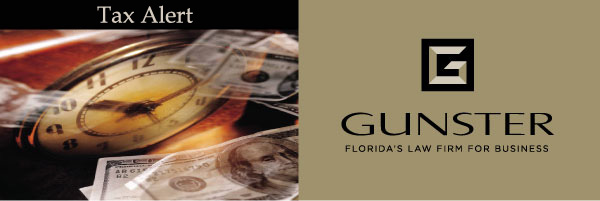
Media reports in 2010 indicated that the Justice Department may be using data from India as a basis for opening investigations of U.S. taxpayers with suspected unreported offshore accounts at HSBC in India, Singapore, and Hong Kong. Last month, Rick Raven, the IRS Deputy Chief for Criminal Investigations, reported that IRS Criminal Investigations Chief Victor Song was on a tour to visit law enforcement officials in India and other countries as part of the IRS’s continuing crackdown on offshore accounts. It is expected that there will be major prosecutions arising from HSBC accounts. Vaibhav Dahake was charged on January 26 in New Jersey for conspiracy with bankers to hide assets. Two bankers were in Thane, India. The U.S. appears to be moving from UBS in Switzerland to HSBC account holders in the East. Those with unreported foreign assets should consider their options. Those options may include being part of the new 2011 Voluntary Disclosure Program discussed in further detail below.
Prosecutions
The Department of Justice has recently successfully prosecuted individuals with undisclosed offshore accounts. Prison sentences have generally been in excess of one year.
Last year as part of a deferred prosecution agreement, the U.S. government caused UBS to turn over the names of thousands of people with secret offshore accounts. So far, the IRS has obtained 4,000 account names from UBS and the IRS expects to have 7,500 account names by the time the prosecution agreement is wound down. However, the U.S. government has said that it is not stopping with UBS. Instead, they are now focusing on banks, advisers and promoters from around the world with a special emphasis on India, the Middle East, Hong Kong and Singapore.
Possible sources of IRS leads for future prosecutions include: civil audits of a taxpayer’s tax returns; informers; whistleblowers seeking awards; disgruntled bank employees, information from summonses of U.S. and foreign financial institutions, data supplied by India and other foreign countries, and information provided by taxpayers who have already entered into an IRS Voluntary Disclosure Program. For example, in January, the former chief operating officer of Julius Baer’s Cayman Island Branch released to Wikileaks data on 2,000 cross-border bank accounts he believed were involved in tax evasion.
New Laws Designed to Catch Those Hiding Assets
The IRS will soon have new enforcement tools with respect to accounts of U.S. taxpayers in India and other foreign jurisdictions. In the past, a secret foreign account was not required to be specifically identified on a Form 1040. However, U.S. individual taxpayers who hold, in 2011, financial assets exceeding $50,000 in the aggregate, must report these assets on their Forms 1040 filed in early 2012. Reportable financial assets include financial accounts in India and other countries; any interest in an entity formed in India or other foreign country; and any financial instrument or contract held for investment. These new reporting requirements are in addition to the current requirement that taxpayers file a “Report of Foreign Bank and Financial Accounts” (commonly referred to as an “FBAR” report) to disclose their foreign accounts. There are significant penalties for failing to report.
The IRS may also use tax treaties to catch those people with hidden accounts. For example, Article 28(2) of the U.S.-India Tax Treatyspecifies that the Indian government can supply information to the IRS.
Beginning in 2013, financial institutions in India and elsewhere that hold U.S. securities portfolios must, as a practical matter, in order to avoid burdensome U.S. withholding on the yield from that portfolio, enter into a written agreement with the IRS. The agreement will require the Indian or other financial institution to perform due diligence to determine indirect or direct U.S. owners, and to report to the IRS.
2009 Voluntary Disclosure Program
The IRS previously launched a voluntary disclosure program in March 2009 (“2009 VDP”). The 2009 VDP closed in October 2009. The 2009 VDP accepted 15,000 taxpayers and allowed those taxpayers to avoid criminal prosecution if: they revealed all of their previously undisclosed foreign assets, submitted amended returns for the last six years, paid all taxes and interest due on those returns, and paid a 20% penalty on the tax and on the largest aggregate balance in the accounts.
The NEW 2011 Voluntary Disclosure Program
Today the U.S. government announced a new voluntary disclosure program (“2011 VDP”). Under the 2011 VDP, taxpayers who voluntarily come forward and report their previously undisclosed foreign accounts and assets by August 31, 2011 will be excused from criminal prosecution. This new program has a somewhat higher penalty structure than the 2009 VDP.
|
This publication is for general information only. It is not legal advice, and legal counsel should be contacted before any action is taken which might be influenced by this publication. Should you wish to receive further information concerning matters discussed in this publication, please contact the following attorneys in our Tax Martin R. Press
968.468.1314 ▪ [email protected]
Lu-Ann Dominguez
954.468.1393 ▪ [email protected]
Alan S. Lederman
954.468.0415 ▪ [email protected]
Mahesh H. Nanwani
305.376.6068 ▪ [email protected]
Established in 1925, Gunster Yoakley is one of Florida’s oldest and largest full-service law firms. Its substantial and diversified practice serves an extensive client base of international, national and local businesses, institutions, local governments and prominent individuals. The firm maintains a strong presence in Florida with offices in Fort Lauderdale, Miami, Palm Beach, Stuart, Vero Beach, West Palm Beach, Jacksonville, and Tallahassee. Gunster Yoakley is home to more than 160 attorneys and 329 employees, providing counsel to clients through 18 practice groups including corporate, immigration, employment, technology and emerging companies, tax, banking and financial services, real estate, land use and environmental, business litigation, and private wealth services. |
